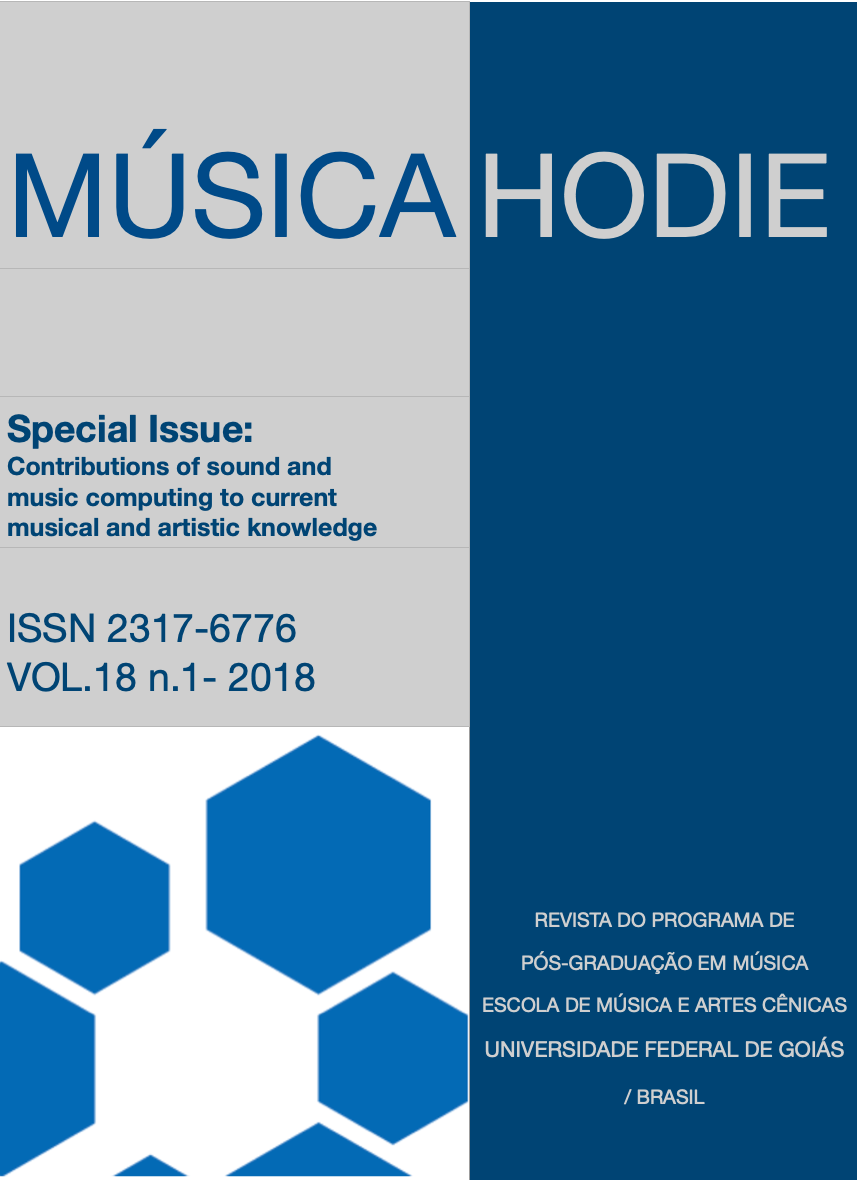Impact of algorithmic composition on player immersion in computer games: a case study using Markov Chains
DOI:
https://doi.org/10.5216/mh.v18i1.53571Keywords:
Computer music, Immersion, Digital gamesAbstract
The feeling of immersion is an important aspect of gaming experiences. It can be greatly impacted by back- ground music. In this work, we investigate the use of algorithmically-generated background music as a mean to ge- nerate immersion in gaming experiences. For such, we developed two versions of the same game. One of them uses music written by a composer. The other uses real-time generated melodies based on a Markov chain. We evaluated the immersion level related to each of these versions using user questionnaires and performance measures. The re- sults did show only a small immersion difference between the versions. This indicates that algorithmic music can be a suitable option for game content generation.
Downloads
References
ASSAYAG, Gérard; BLOCH, Georges; CHEMILLIER, Marc. OMax-Ofon. In: Sound and Music Computing (SMC) 2006, Marseille. p. 1-8, 2006.
BILES, John A. GenJam: A genetic algorithm for generating jazz solos. In: Proceedings of the In- ternational Computer Music Conference, p. 131-137, 1994.
BROCKMYER, Jeanne H.; FOX, Christine M.; CURTISS, Kathleen A.; MCBROOM, Evan; BUR- KHART, Kimberly M.; PIDRUZNY, Jacquelyn. The development of the game engagement ques- tionnaire: A measure of engagement in video game-playing. Journal of Experimental Social Psy- chology, p. 624-634, 2009.
BROWN, Emily; CAIRNS, Paul. A grounded Investigation of Game Immersion. CHI 2004 Con- ference on Human Factors in Computing Systems, p. 1297-1300, 2004.
ERMI, Laura; MÄYRÄ, Frans. Fundamental Components of the Gameplay Experience: Analys- ing immersion. In: CASTELL, Suzanne de (Ed.). Worlds in Play: International Perspectives on Digital Games Research. United States of America: Peter Lang Pub, n. 2, p. 37-53, 2005.
JENNETT, Charlene; COX, Anna L.; CAIRNS, Paul; DHOPAREE, Samira; EPPS, Andrew, TIJS, Tim; WALTON, Alison. Measuring and defining the experience of immersion in games. Inter- national Journal of Human-Computer Studies, p. 641-661, 2008.
LIVINGSTONE, Steven R.; BROWN, Andrew R. Dynamic response: real-time adaptation for music emotion. In Proceedings of the second Australasian conference on Interactive entertain- ment, p. 105-111, 2005.
MCVICAR, Matt; FUKAYAMA, Satoru; GOTO, Masataka. AutoRhythmGuitar: Computer-aided composition for rhythm guitar in the tab space. In: International Computer Music Conference, p. 14-20, 2014.
NAKAMURA, Masato. Green Hill Zone. Sonic the Hedgehog. Producer: Sega Genesis. 1991.
OLIVEIRA, Raul P. de; OLIVEIRA, DENISE. C. P. de; TAVARES, Tiago F. Measurement methods for phenomena associated with immersion, engagement, flow, and presence in digital games. In: Proceedings of the SBGames Conference, 15, São Paulo, Brazil, p. 127-135, 2016.
ZHANG, Jiulin; FU, Xiaoqing. The Influence of Background Music of Video Games on Immer- sion. Journal of Psychology & Psychotherapy, v. 5, n. 4, p. 1, 2015.















